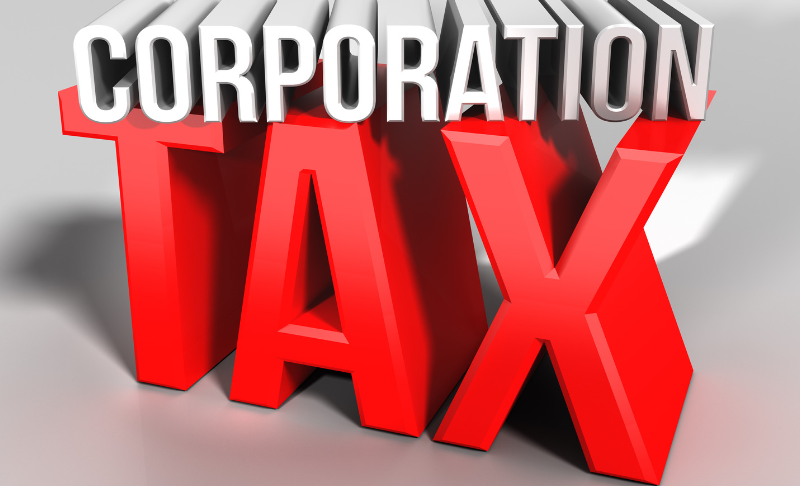If you own a company or are involved in running one, you must have heard of Corporation Tax. It’s essential to understand what it is, who pays it, and why it is important. Corporation Tax in the UK is a tax levied on the profits made by companies operating within the country. The amount of tax paid depends on the company’s profits after accounting for various deductions and allowances. This blog post aims to provide an ultimate guide to Corporation Tax in the UK, covering everything from its definition and purpose to penalties for late filing and payment. We will also discuss common mistakes that businesses make when dealing with Corporation Tax, so you can avoid them and stay compliant with tax laws. So whether you’re a new business owner or have been running a company for years, this guide will help you understand everything you need to know about corporation tax in the UK.
Introduction to Corporation Tax in UK

If you’re a business owner in the UK, understanding corporation tax is crucial. Corporation tax is a tax on the profits made by limited companies and some other organizations operating in the UK. It’s important to have a solid grasp of how corporation tax works and what your obligations are as a business owner.
In this blog post, we’ll provide an introduction to corporation tax in the UK. We’ll explain what it is, how it’s calculated, and who needs to pay it. We’ll also cover some key considerations and tips to help you navigate the world of corporation tax more effectively. So whether you’re just starting out or looking to brush up on your knowledge, this blog post has got you covered.
What is Corporation in Tax?
Corporation tax is a type of tax that is imposed on the profits made by companies or corporations. It is a key source of revenue for governments and is typically calculated based on the company’s taxable profits. The rate at which corporation tax is charged can vary from country to country, and there may be different rules and regulations regarding deductions and allowances.
In many countries, corporations are required to file annual tax returns and pay any taxes owed within a specified timeframe. Corporation tax plays an important role in the overall taxation system and helps to fund public services and infrastructure projects.
Who Pays Corporation Tax?
In the UK, limited companies are responsible for paying corporation tax. This tax is levied on a company’s profits during its financial year. It is important for limited companies to accurately calculate and report their profits to ensure they are paying the correct amount of corporation tax. Failure to do so can result in penalties and legal consequences. It is recommended that limited companies seek professional advice or utilize accounting software to assist with calculating and paying corporation tax to ensure compliance with UK tax laws.
Who is Responsible for Paying Corporation Tax?
In the case of a limited company, the responsibility for paying corporation tax falls on the company itself. The company is required to calculate its taxable profits and file a corporation tax return with HM Revenue & Customs (HMRC). The corporation tax is then paid based on the profits earned during the accounting period.
It is important for limited companies to ensure that they meet all their tax obligations and submit accurate information to HMRC to avoid any penalties or legal issues. Seeking advice from a qualified accountant or tax professional can be helpful in understanding and managing corporation tax responsibilities effectively.
Purpose and Importance of Corporation Tax in the UK

Corporation tax is a levy that is imposed on the taxable profits of limited companies and other organizations in the United Kingdom. The standard rate of corporation tax is 19%. However, there are a number of different rates that can apply depending on the size and type of company.
The amount of corporation tax that a company pays is calculated using a number of different factors, such as the level of their profits, the type of business they are involved in and where their headquarters are located.
The purpose of corporation tax is to raise revenue for the government, which can be used to fund public services, such as education and healthcare. It is also used to encourage businesses to invest and grow by providing them with a deduction on their profits.
In recent years, the importance of corporation tax has come under scrutiny, as some companies have been able to avoid paying it altogether. However, it remains an important source of income for the government and helps to create a level playing field between businesses.
How Much is the Corporation Tax in the UK?
The current corporation tax rate in the UK is 19 per cent. However, it is important to note that there are plans to increase the rate to 25 per cent for larger companies with profits over £250,000. This increase is set to take effect from April 2023. It is always advisable to consult with a tax professional or refer to the latest government guidelines for the most up-to-date information on corporation tax rates in the UK.
Who is Liable to Pay Corporation Tax?
Registered companies are generally liable to pay corporation tax in most jurisdictions. A corporation tax is a tax on a company’s profits, typically calculated based on the company’s annual financial statements. The specific rules and regulations regarding corporation tax can vary from country to country, but in general, any company that is registered as a legal entity and carries out business activities is required to pay corporation tax on its profits.
It is important for registered companies to comply with their obligations for filing tax returns and paying the appropriate amount of corporation tax to avoid penalties or legal consequences.
How is Corporation Tax Calculated in the UK?

Calculating corporation tax in the UK can be a complex process, but for businesses with profits between £50,000 and £25,000, a specific formula is used to determine the amount owed. The rate of corporation tax is currently set at 19% for most businesses, but for those falling within this profit range, the percentage charged can vary. This is because these businesses may be eligible for marginal relief, allowing them to claim a reduction in the tax owed.
The exact percentage charged will depend on how much marginal relief the business can claim, with a minimum rate of 19% and a maximum rate of 25%. It is important for businesses to carefully calculate their profits and consult with a tax professional to ensure they are accurately fulfilling their corporation tax obligations.
What Are the Penalties for Late Filing and Payment?
Late filing and payment of taxes can result in penalties. If you delay paying your tax by 30 days, you will be required to pay 5% of the tax you owe at that date. An additional penalty may be imposed if the delay extends to six months. Filing and paying your taxes on time is important to avoid these penalties and any potential interest charges. Late filing and payment can also impact your credit score and may result in further consequences from the tax authorities while credit check. Therefore, it is crucial to prioritize timely submission and payment of your taxes to avoid unnecessary penalties and complications.
Common Mistakes When Dealing With Corporation Tax

When it comes to dealing with corporation tax in the UK, there are several common mistakes that businesses often make. One of the most common mistakes is failing to keep accurate records and documentation of all financial transactions. This can lead to errors in calculating taxable profits and can result in penalties from HM Revenue and Customs. Another common mistake is not understanding the various tax reliefs and allowances that are available to businesses.
By not taking advantage of these reliefs, businesses may end up paying more tax than necessary. Additionally, failing to meet deadlines for submitting tax returns or making payments can also result in penalties. It is important for businesses to stay organized and informed when dealing with corporation tax to avoid these common mistakes.
Conclusion
In conclusion, understanding and managing corporation tax is crucial for businesses operating in the UK. It is a tax on the profits made by limited companies and other similar organizations. It is important to know who is liable to pay corporation tax, how it is calculated, and the penalties for late filing and payment. Businesses can effectively meet their tax obligations and avoid unnecessary penalties by ensuring compliance with the regulations and avoiding common mistakes. If you need assistance or guidance with corporation tax matters, consult a professional specialising in UK taxation to ensure accuracy and compliance.









